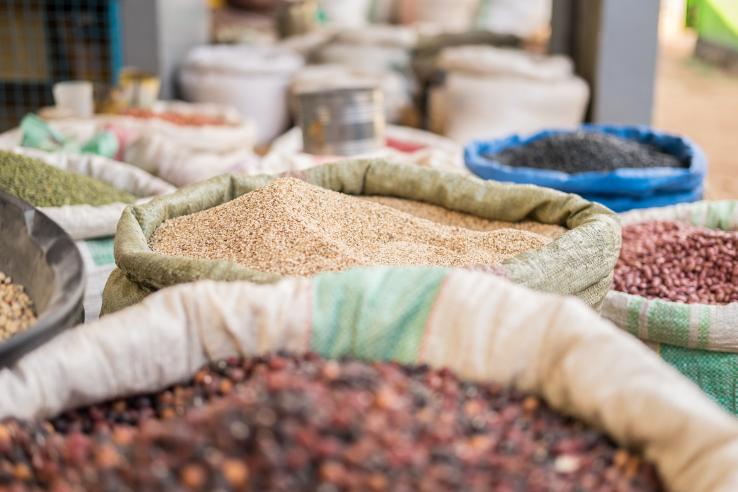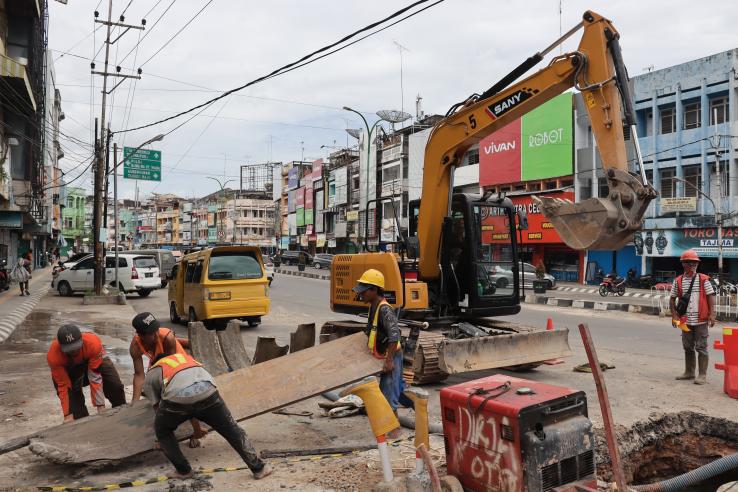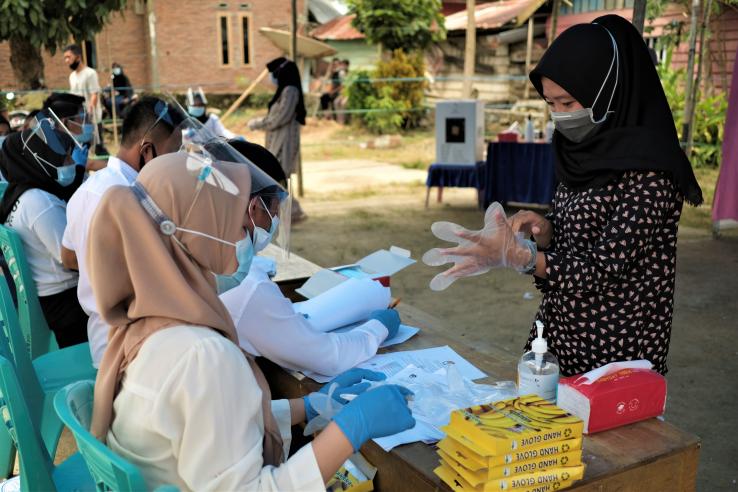Displaying 4726 - 4740 of 8104
Research resource
As with in-person surveys, remote survey work involves considerations at every stage of the project lifecycle. This page summarizes key points regarding remote surveys and, where applicable, lists J-PAL’s related public resources, in which more detailed guidance can be found. In restricting the...
Evaluation
Researchers conducted three randomized evaluations to measure the degree of competition among wholesale maize traders, understand the implications for social welfare, and test whether new traders could make a market more competitive. Researchers found that traders did not pass through much of a randomly administered cost reduction by lowering prices to consumers and, instead, colluded with other traders to maximize their profits.
Resource
Basic page
The Innovation, Data and Experiments in Education (IDEE) programme helps education researchers produce actionable evidence in France by facilitating access to administrative data, providing research resources and measurement tools, and structuring partnerships with policy-makers and practitioners.
Evaluation
Researchers conducted a randomized evaluation to test the impact of a cash transfer program conditional on seasonal migration and an unconditional cash transfer (UCT) program on rural households’ decisions to migrate and migration season earnings in West-Timor, Indonesia. Relative to the UCT, the CCT was most effective at raising migration season earnings when the transfer size was just enough to cover migration expenses; however, when the transfer size exceeded migration travel costs, relatively lower-income households migrated for the purpose of collecting the transfer and overall program impact lessened.
Person
Vanessa is Research Associate at J-PAL LAC and she works on a project with the Ministry of Economy of Peru to identify innovation opportunities to improve the system and the management of human resources of public officials at the national, regional and local levels.
Blog
How to achieve good governance—as measured by accountability, government effectiveness, and control of corruption—is a question that has been at the heart of J-PAL’s Governance Initiative (GI) since its inception in 2011. In response, GI funds rigorous experimental research projects tackling a...
Blog
J-PAL este un centru de cercetare axat pe reducerea sărăciei ce are ca obiectiv promovarea politicilor publice bazate pe dovezi științifice. Constituit dintr-o rețea formată din 225 de profesori afiliați la universități din întreaga lume, J-PAL efectuează evaluări de impact randomizate pentru a...
Blog
I ricercatori della rete di J-PAL hanno condotto più di 80 studi randomizzati di progetti e politiche sociali in 20 paesi europei, di cui 5 in Italia, in particolare nei campi dell’educazione e del mercato del lavoro. J-PAL Europe ha pubblicato un riassunto dei risultati principali di questa ricerca...
Person
Evaluation
Researchers are measuring the impact of a quiz-style information strategy on people’s learning and adherence to Covid-19 health protocols. This study is part of a three-country research program in Ghana, the US, and Zambia aiming to find evidence on the best strategies to communicate health measures.
Evaluation
Researchers are measuring the impact of a quiz-style information campaign on people’s learning and adherence to Covid-19 health protocols. This study is part of a three-country research in the United States, Ghana, and Zambia program aiming to generate evidence on the best strategies to effectively communicate health measures.
Evaluation
Researchers are measuring the impact of a peer information sharing strategy on people’s learning and adherence to Covid-19 health protocols. This study is part of a three-country research program in Zambia, Ghana, and the US aiming to find evidence on the most effective strategies to communicate health measures.
Blog
Les chercheurs affiliés au réseau J-PAL ont mené plus de 80 études randomisées pour évaluer l’impact de programmes et politiques sociales dans vingt pays européens, en particulier dans les domaines de l’éducation et de l'emploi. Une synthèse des résultats de ces évaluations, ainsi que les pistes de...
Person
Person






